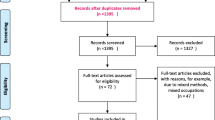Abstract
Objective: In 1975, Donald Light, Jr., presented a “sociological calendar” as a paradigm for describing the important dimensions and stages of social and professional development in psychiatric residency training. The authors sought to develop an updated calendar and to determine if the calendar is consistent with attitudes of residents in various stages of their training. Methods: A new sociological calendar was developed after conducting a focus group with chief residents. The Osgood Semantic Differential Survey (OSD) was used to measure residents’ attitudes, and the results were compared with the modified calendar. Results: The updated calendar differs considerably from Light’s original calendar. Findings from the OSD were generally consistent with the updated calendar. Conclusions: A modern sociological calendar illustrates the relatively predictable transitions that residents go through over the course of their training. By better understanding these stages of development, supervisors and residency directors may become more effective in their teaching and support efforts.
Similar content being viewed by others
References
Brent DA: The residency as a developmental process. J Med Educ 1981; 56: 417–422
Yager J: A survival guide for psychiatric residents. Arch Gen Psychiatry 1974; 30: 494–499
Light D: The sociological calendar: an analytical tool for field-work applied to medical and psychiatric training. American Journal of Sociology 1975; 80: 1145–1164
Light D: Becoming Psychiatrists: The Professional Transformation of Self. New York, WW Norton, 1980
Durham ML: Mental health and managed care. Annu Rev Public Health 1998; 19: 493–505
Blumenthal D, Gokhale M, Campbell EG, et al: Preparedness for clinical practice: reports of graduating residents at academic health centers. JAMA 2001; 286: 1027–1034
Krueger RA: Focus Groups: A Practical Guide for Applied Research. Newbury Park, CA, Sage, 1988
Britten N: Qualitative research: qualitative interviews in medical research. BMJ 1995; 311: 251–253
Osgood CE, Suci GJ, Tannenbaum PH: The Measurement of Meaning. Chicago, University of Illinois Press, 1957
Austin JK, Champion VL, Tzeng OCS: Cross-cultural comparison on nursing image. Int J Nurs Stud 1985; 22: 231–239
Malik SL, Manchanda SK, Keepak KK, et al: The attitudes of medical students to the objective practical examination. Med Educ 1988; 22: 40–46
Hunt DD, Fenichel G, Baker V, et al: Contrasts in professional identities in psychiatrists and internists. J Med Educ 1984; 59: 894–899
Halleck SL, Woods SM: Emotional problems of psychiatric residents. Psychiatry 1962; 25: 339–346
Klagsbrun SC: In search of an identity. Arch Gen Psychiatry 1967; 16: 286–289
Tischler GL: The beginning resident and supervision. Arch Gen Psychiatry 1968; 19: 418–422
Belitsky CA, Kennedy SH: Transition to psychiatric residency: unique stresses; unique rewards. Jefferson Journal of Psychiatry 1995; 12: 37–46
Shershow JC, Savodnik I: Regression in the service of residency education. Arch Gen Psychiatry 1976; 33: 1266–1270
Rodenhauser P: Regression as a cardinal factor in organizational destabilization. Adm Policy Ment Health 1993; 20: 153–164
Bion WR: Experiences in Groups. New York, Basic Books, 1961
Schutz WC: The Interpersonal Underworld. Palo Alto, CA, Science and Behavior Books, 1966
Kernberg OF: Leadership and organizational functioning: organizational regression. Int J Group Psychother 1979; 28: 3–25
Greenblatt M: The use and abuse of power in the administration of systems. Psychiatric Annals 1986; 16: 650–652
Hafferty FW: Beyond curriculum reform: confronting medicine’s hidden curriculum. Acad Med 1998; 73: 403–407
Rodenhauser P, Rudisill JR, Dvorak R: Skills for mentors and protégés applicable to psychiatry. Acad Psychiatry 2000; 24: 14–27
Bucher R, Stelling J, Dommermuth P: Implications of prior socialization for residency programs in psychiatry. Arch Gen Psychiatry 1969; 20: 395–402
Author information
Authors and Affiliations
Corresponding author
Rights and permissions
About this article
Cite this article
Fann, J.R., Hunt, D.D. & Schaad, D. A Sociological Calendar of Transitional Stages During Psychiatry Residency Training. Acad Psychiatry 27, 31–38 (2003). https://doi.org/10.1176/appi.ap.27.1.31
Published:
Issue Date:
DOI: https://doi.org/10.1176/appi.ap.27.1.31




